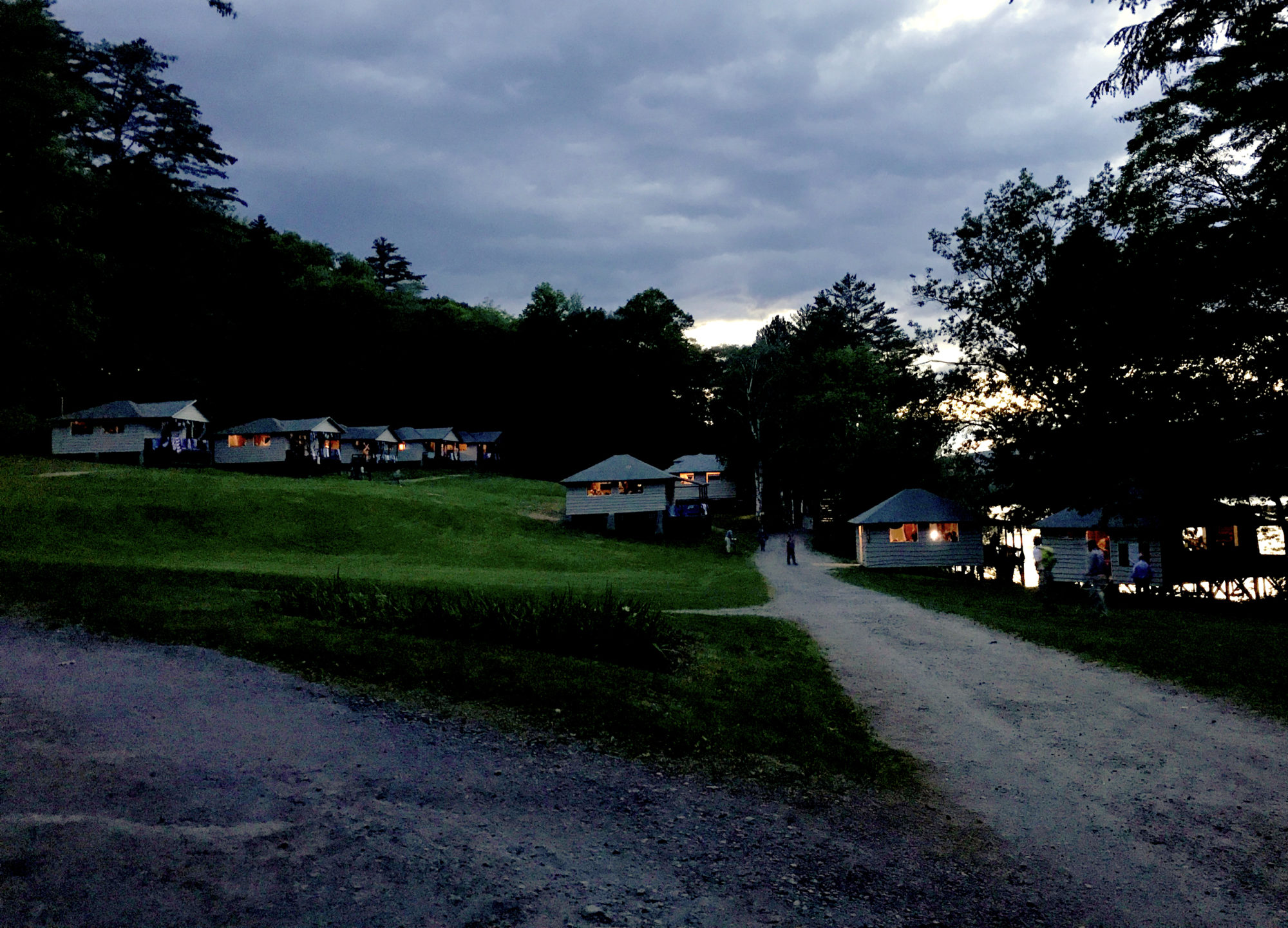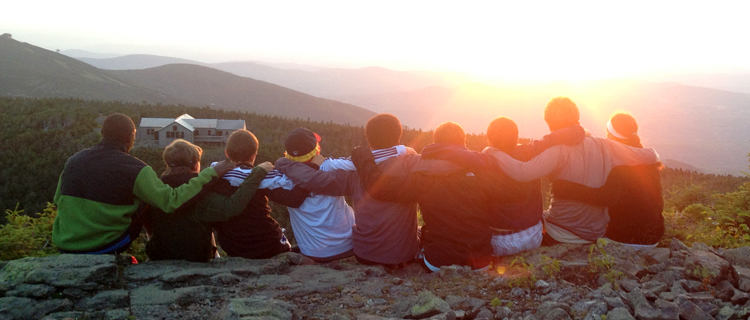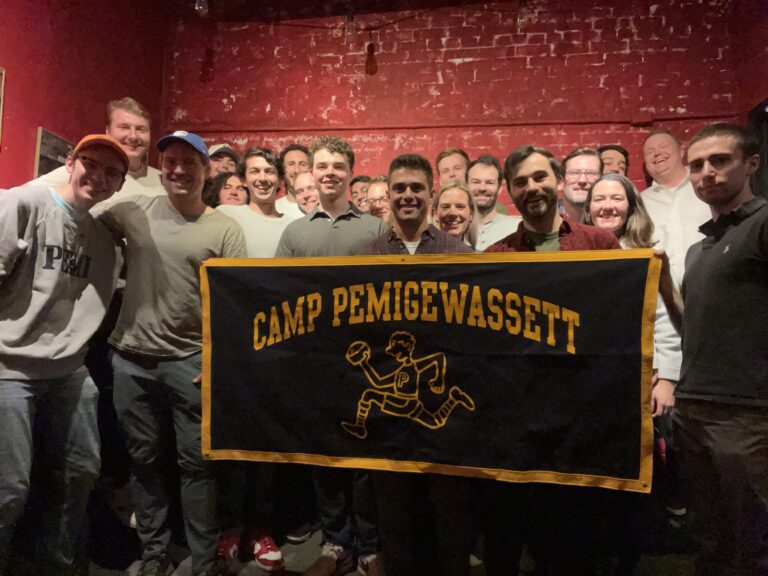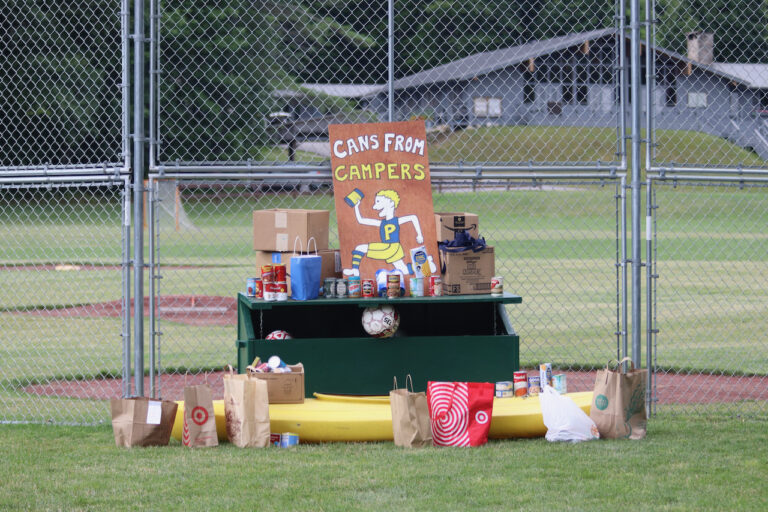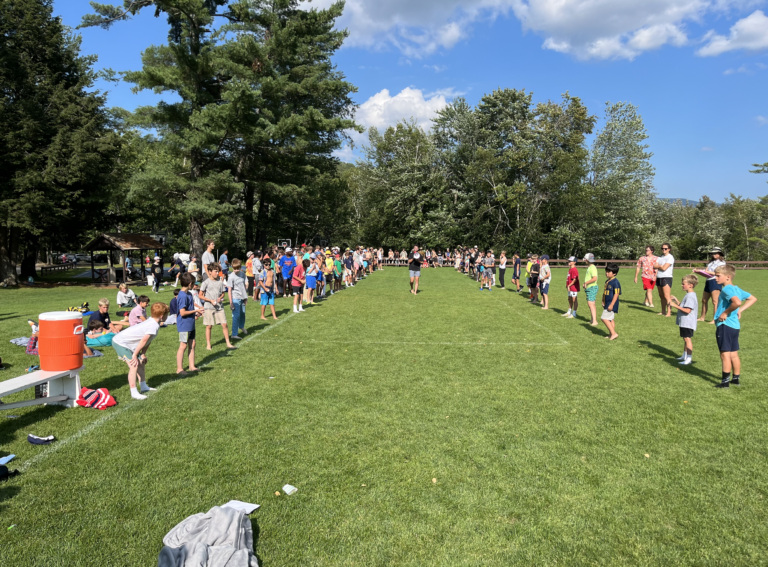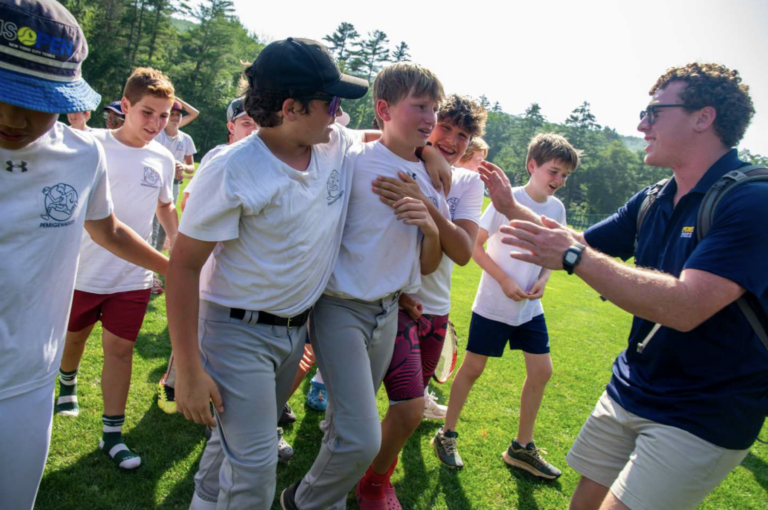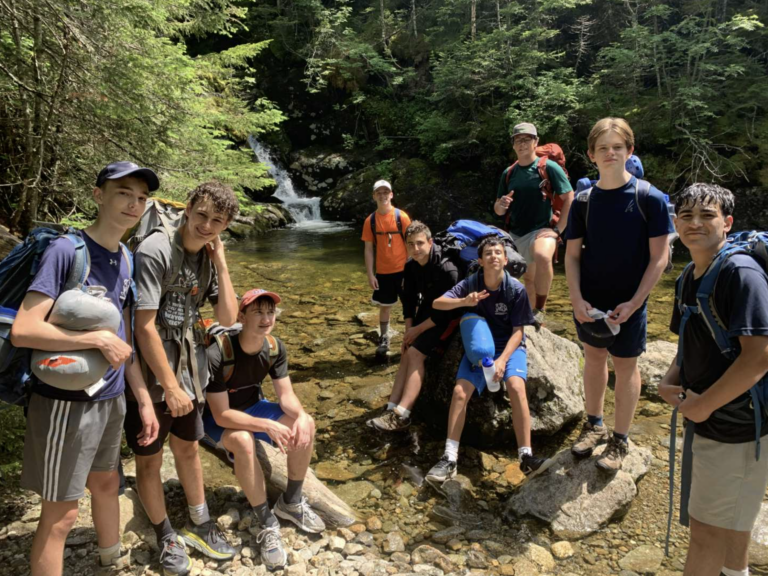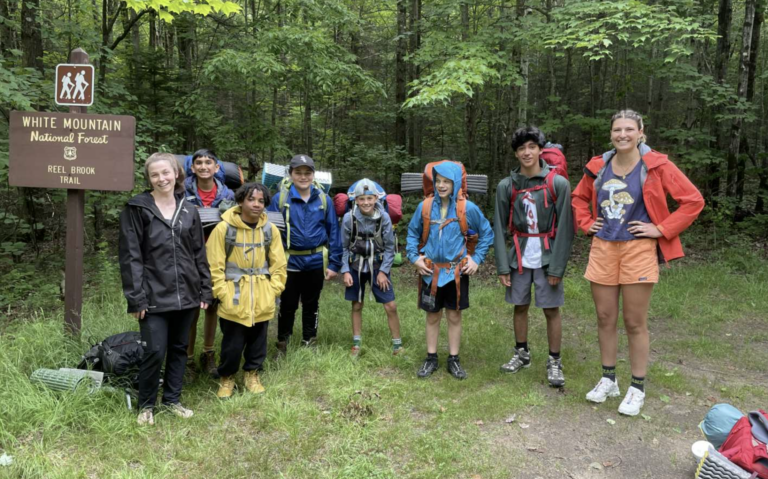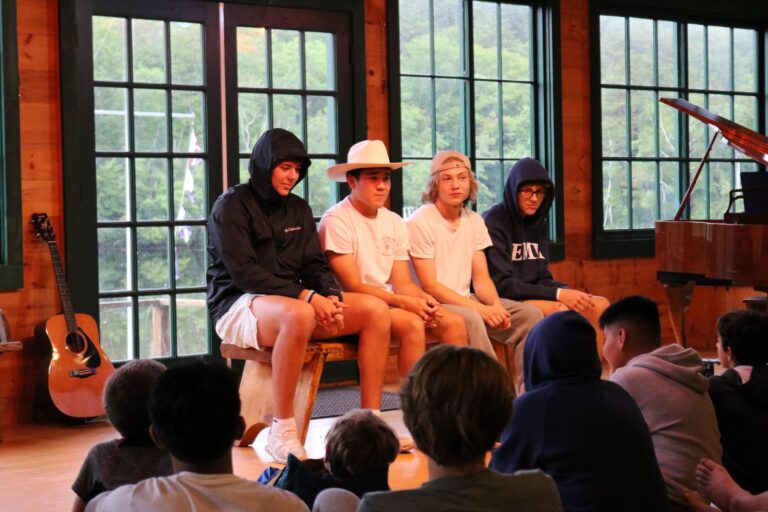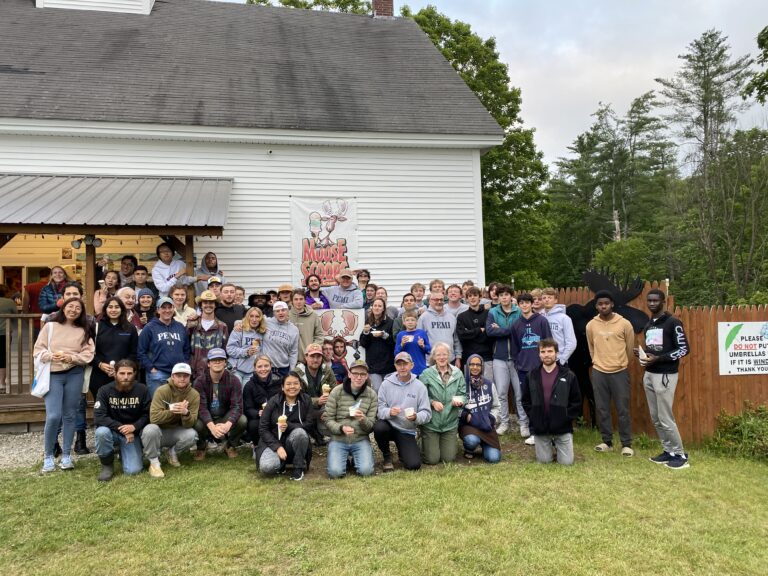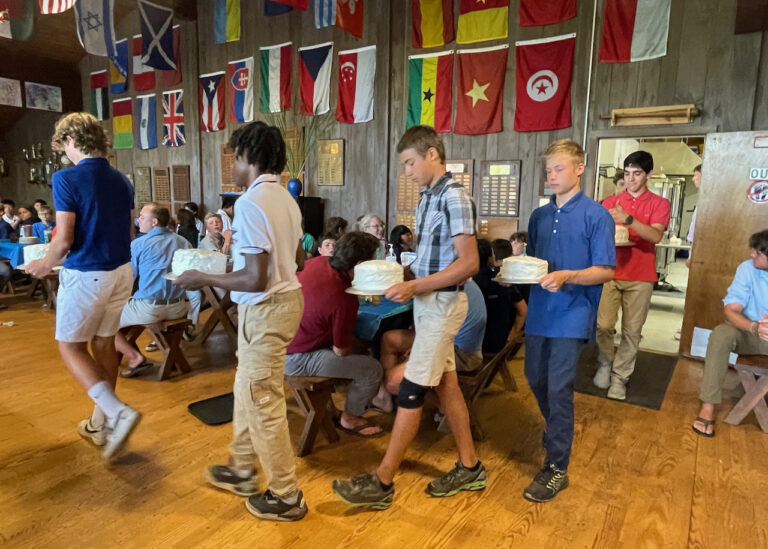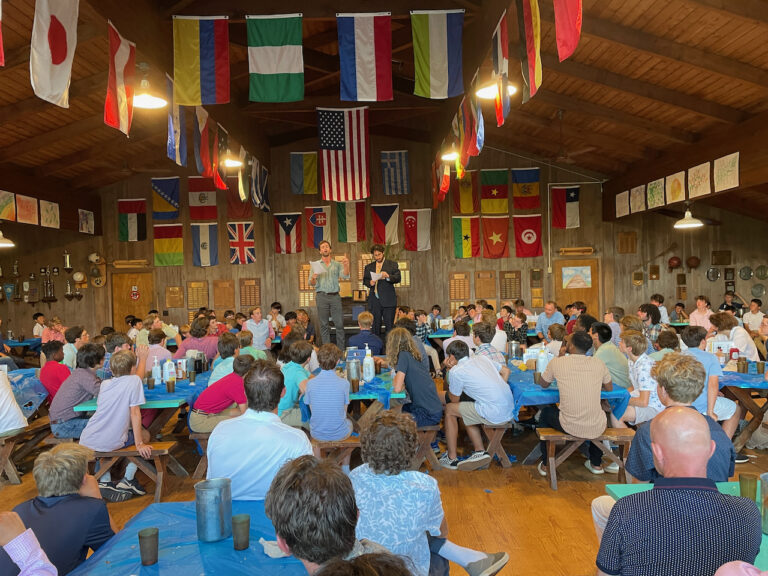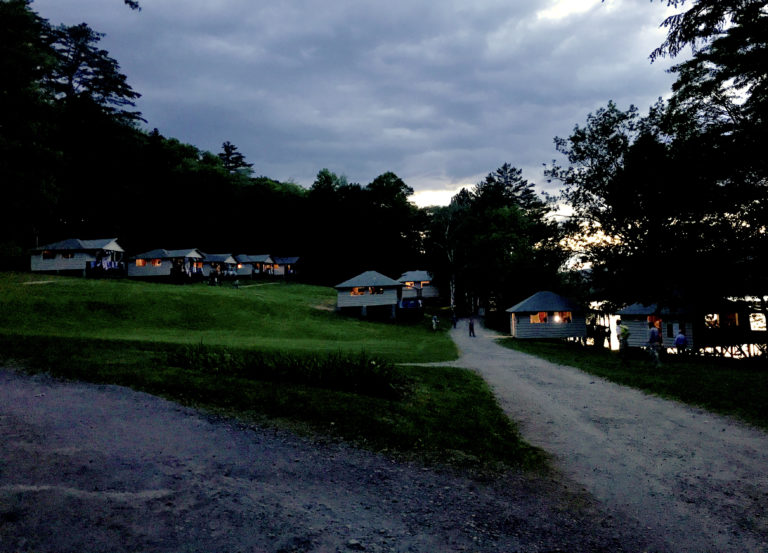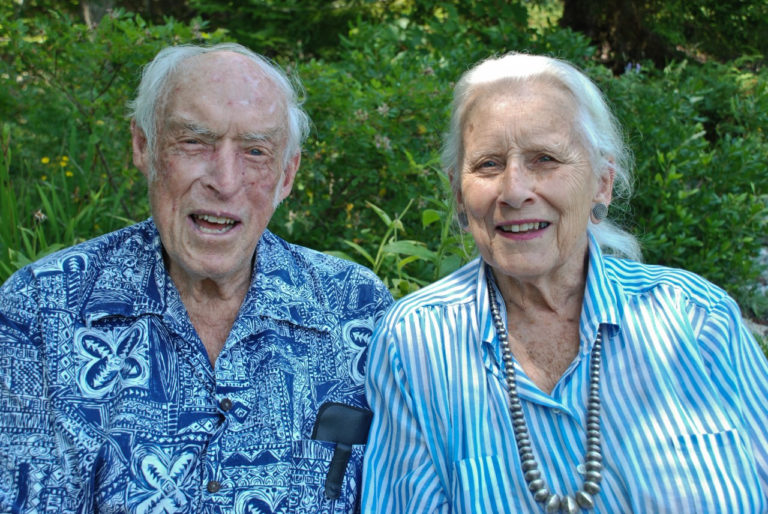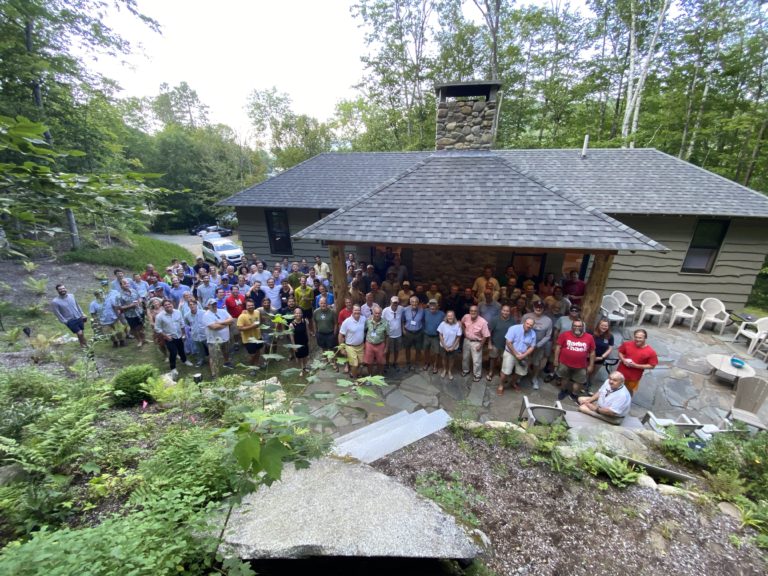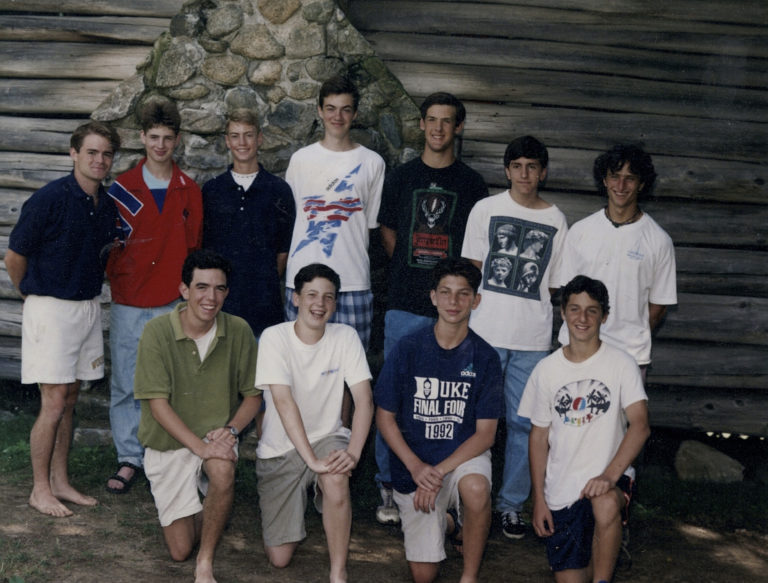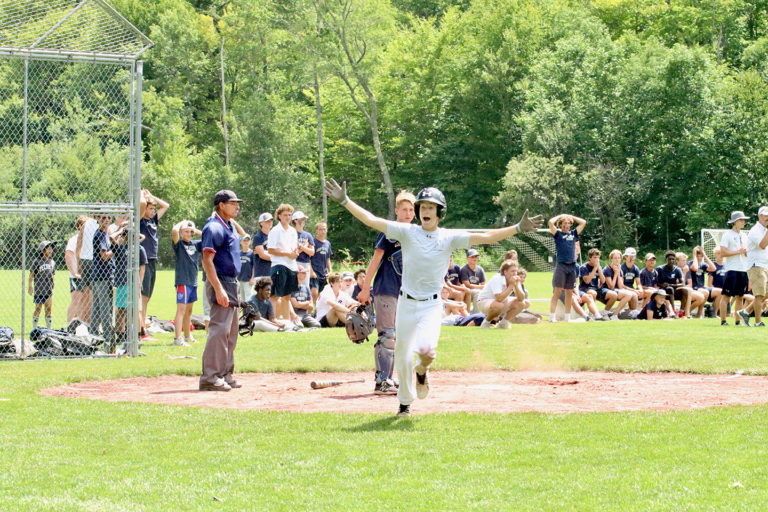- Daily Life at Pemi
- Education at Pemi
- News
- Resources for Parents
- Staff Stories
Summer Reading
 The American Camp Association has just launched “Explore 30,” a program designed for camp communities to address the issue of summer learning loss by encouraging reading while at summer camp. It will come as no surprise to those of you familiar with Pemi’s daily schedule, traditions, and even facilities, that the Pemi ethos has long valued and supported the practice of reading. From time set aside—daily rest hour, self-scheduled afternoons, bedtime—to a well-stocked library, to a 250-page “summer’s record” publication mailed annually to each community member, we like to think that Pemi has played a role in cultivating for many a boy a lifelong habit of reading.
The American Camp Association has just launched “Explore 30,” a program designed for camp communities to address the issue of summer learning loss by encouraging reading while at summer camp. It will come as no surprise to those of you familiar with Pemi’s daily schedule, traditions, and even facilities, that the Pemi ethos has long valued and supported the practice of reading. From time set aside—daily rest hour, self-scheduled afternoons, bedtime—to a well-stocked library, to a 250-page “summer’s record” publication mailed annually to each community member, we like to think that Pemi has played a role in cultivating for many a boy a lifelong habit of reading.
Tom Reed, Jr., Professor of English at Dickinson College and a Pemi director, takes a look at the cherished ritual of “reading after taps.”
For as long as I can recall – thinking back over a half century as a camper and on staff – one of the most winning aspects of Pemi’s bedtime ritual finds the counselor reading to his cabin after lights-out. The practice likely goes back to the very first years of camp, when the stories would have come from Booth Tarkington or Horatio Alger and not, as in my own early days, from the Hardy Boys or, more recently, Harry Potter or Lemony Snickett.
There’s never any trouble getting younger campers to buy into the practice. So keen are most to recreate with their new “family” the rites of their real homes that a clever counselor can often get his charges into bed and quiet even before the bugle sounds “Taps.” He simply promises to begin the reading as soon as all teeth are brushed and everyone’s clambered into their bunks, lowered their mosquito nets, and pulled their covers up to their chins. Older boys – maybe on the 13-14 cusp – may appear to need some convincing: being read to might imply that they were still as young as the rapt listener in The Princess Bride, which might not be cool. Then again . . . ! So, we recommend that even our Upper Intermediate counselors at least try reading for the first week – and the majority of cabins seem more than happy to lock in for the duration. Seniors? They are privileged to chat quietly for a while after Taps has blown, and then to read quietly to themselves until ten o’clock or so – or until the rewarding labors of a long day take their sweet toll and they drop off one by one. I honestly recall, though, being a Senior for the first time and secretly missing what can be among the richest communal moments at camp:
You’ve all had a remarkably active day and, after the mad rush of getting ready for bed, almost all of you are securely tucked-in. Maybe one boy is a little late getting back from the washroom, and you remind him (amiably, we hope) that he should hurry so the story can resume. Or maybe it’s been a rainy day, and you’ve all been in the cabin for an hour, but it’s still incredibly comforting to slip into the double cocoon of bug-net and bed and, as the raindrops pat evenly on the roof above, wait while your counselor switches off the overhead light, walks back to his bed, props himself up against the wall, flips on his headlamp, and opens “the book.” A hush throughout – and he begins.
Some counselors read better than others. I recall having a Scottish counselor in one of my cabins who made Tom Sawyer sound like a Robert Burns poem. Some books are better than others. I can also recall a cabin mutiny when one of those ponderous James Fennimore Cooper novels got off to a such a slow start that we had to convince our counselor to switch to a (carefully censored!) reading of From Russia with Love. But both reader and reading matter quickly fall into the patterns of soothing routine, and one of the more fleeting but memorable parts of the cabin experience takes off for the summer.
It’s a little like a campfire, but you’re safely in bed. The light cast by the counselor’s headlamp dances on the rafters almost like firelight, as his head turns ever so slightly to follow the words – or he looks up to see a Luna moth attracted to the illuminated page. Sometimes, a boy who drifted off prior to last night’s conclusion will need an update – but the boys are normally right back up to speed with no need for a reminder. If the story is gripping, as it usually is, one or another of you may be tempted to read ahead at rest hour, say. But tempting as this may be, it’s not really how it’s done at Pemi. We’re all in it together, be it Tecumseh Day, four-day hikes, or nightly reading. And to quiet down and listen raptly and all advance together under the spell of an engaging fable is one of the dependable if simple pleasures of our communal life. Fifteen or twenty minutes, a chapter or two. We may want more. Then again, it’s been a tiring day – and if we move too quickly through the book, it will soon be over. That would be too bad.
This is of course all wise and good in a developmental sense. What could be better, amidst the full-bore active life, than to pay this regular attention to the life of the mind and of the imagination? It’s also (as you all clearly realize) a terrific way to quiet the lively masses for the night, something dearly appreciated by those staff who will monitor the cabin areas on “Night Patrol.” But if it’s a smart and practical thing to do, it’s also spiritually unifying. Whatever our days have involved, whatever trials or successes or irritations or joys, everyone in the cabin is carried along together in the momentum of carefully crafted words, offered by an “older brother” who is tuned in to the common welfare in a comfortingly dependable way.
More evenings than I can say, as I and a few senior staff stand on the Intermediate Hill or in the Junior Camp after the bugle has blown, I’ll walk down the line of cabins as the last glow leaves the western sky and a thousand stars brighten. I move from one voice to the next, one soft and another louder, one British and one with a Louisville twang, one reading a timeless tale of Poe, another a Roald Dahl. Passing by each porch, I can feel the power of every story, weaving the listeners closer by the moment. Tomorrow, they’ll rush off in their own directions. There may even be squabbles about who has to carry the trash all the way to the recycling area today. But for these hushed moments, something magical happens. It’s hard to pull away.
–Tom Reed, Jr.



